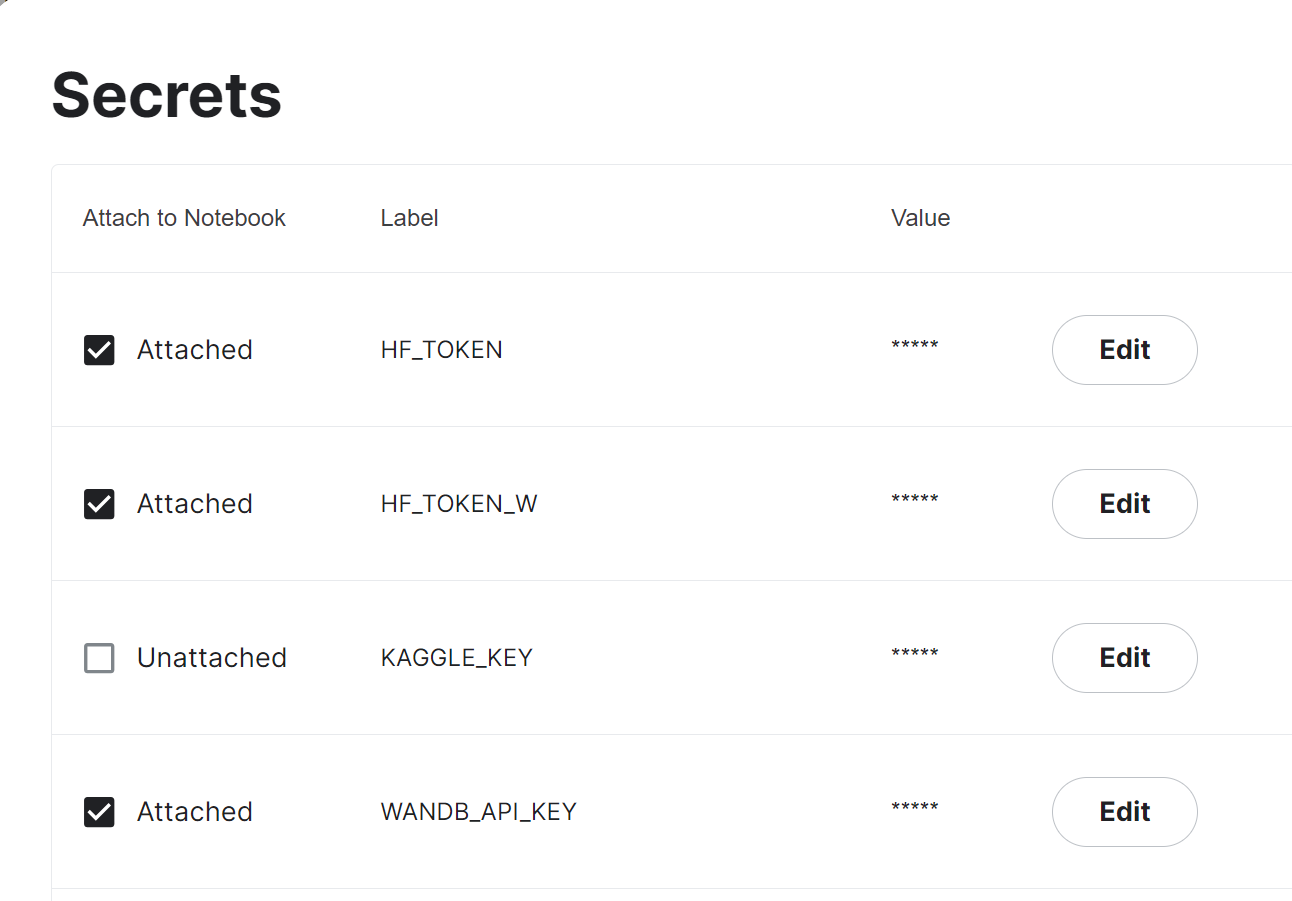Set an environ variable from colab, kaggle or dotenv (search default .env/dotenv/env)
colab and kaggle both provide a way to manage secrets (typically API tokens).
set_env is mainly for running ipynb (jupyter notebook) files in colab/kaggle or cloud instance when we need to set an environ variable, for example, HF_TOKEN to download models or datasets from huggingdace hub, other scenarios include WANDB_API_KEY or NGROK_AUTHCODE or OPENAI_API_KEY etc.
When running an ipynb in a cloud instance, we may use dotenv (pip install python-dotenv) to set environ varibales based on .env.
pip install set-env-colab-kaggle-dotenv
-
In colab, set Secrets

-
In kaggle, set Add-ons/Secrets

-
In other jupyter environ/cloud instance, upload .env, with contents, e.g.
HF_TOKEN=...
WANDB_API_KEY=...
In some cases, files start with a dot are not allowed. Rename .env to dotenv or env instead, set_env will auto-search for .env, dotenv and env.
from set_env import set_env
# e.g.
set_env("HF_TOKEN")
set_env("WANDB_API_KEY")
set_env("NGROK_AUTHCODE")
Sometimes we want to set HF_TOKEN to HF_TOKEN_W (with write-permission).
from set_env import set_env
set_env(env_var="HF_TOKEN", source_var="HF_TOKEN_W")
This is effectively equivalent to os.environ["HF_TOKEN"] = get_secret("HF_TOKEN_W") when in colab or kaggle, or os.environ["HF_TOKEN"] = dotenv.dotenv_values().get("HF_TOKEN_W").


